During the official visit to India from June 4–7, 2025, the high-level delegation of the Communist Party of Vietnam, led by Mr. Nguyễn Trọng Nghĩa, Member of the Politburo, Secretary of the Party Central Committee, and Chairman of the Commission for Publicity, Education and Mass Mobilization, held meetings with leaders of Indian ministries, sectors, and political parties; organized an international seminar on “President Ho Chi Minh and the Vietnam–India Friendship and Solidarity”; and met with officials, Party members, staff of the Vietnamese Embassy in India, and the Vietnamese community in India.
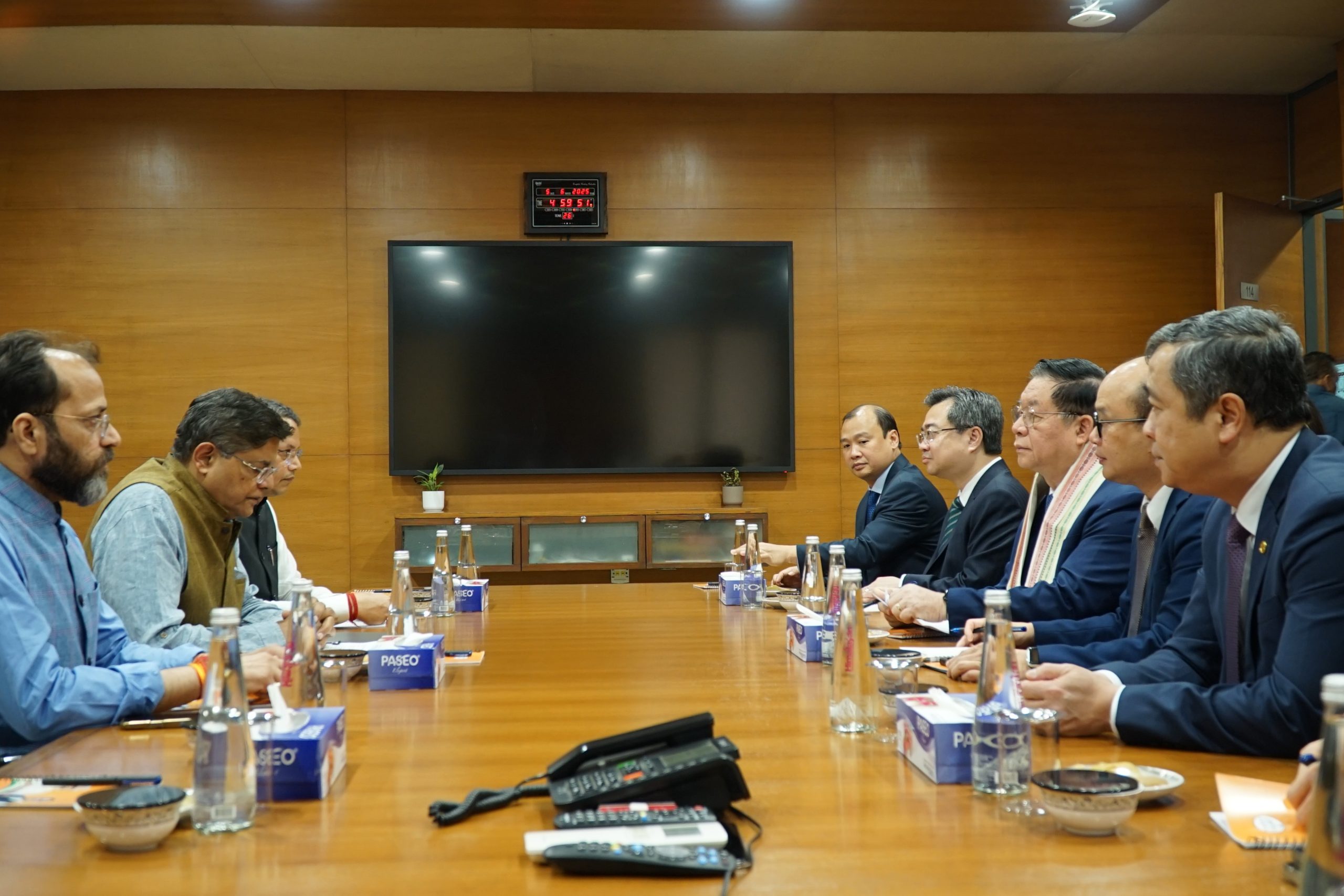
During the meetings with Indian counterparts, Mr. Nguyễn Trọng Nghĩa reaffirmed the consistent policy of the Party and State of Vietnam to value India’s role and position and expressed the desire to further deepen the Vietnam–India Comprehensive Strategic Partnership. He thanked the Indian Government and people for their valuable support during Vietnam’s struggle for national independence and in the country’s current development. He proposed that both sides actively implement the outcomes of high-level visits and agreements, promote future high-level exchanges to enhance political trust, and further improve the effectiveness of bilateral cooperation. He also emphasized that the Communist Party of Vietnam seeks to strengthen relations with Indian political parties to consolidate the political foundation and called on Indian ministries and parties to share development experiences, support human resource training, and strengthen cooperation in light of the complex and unpredictable global and regional context.
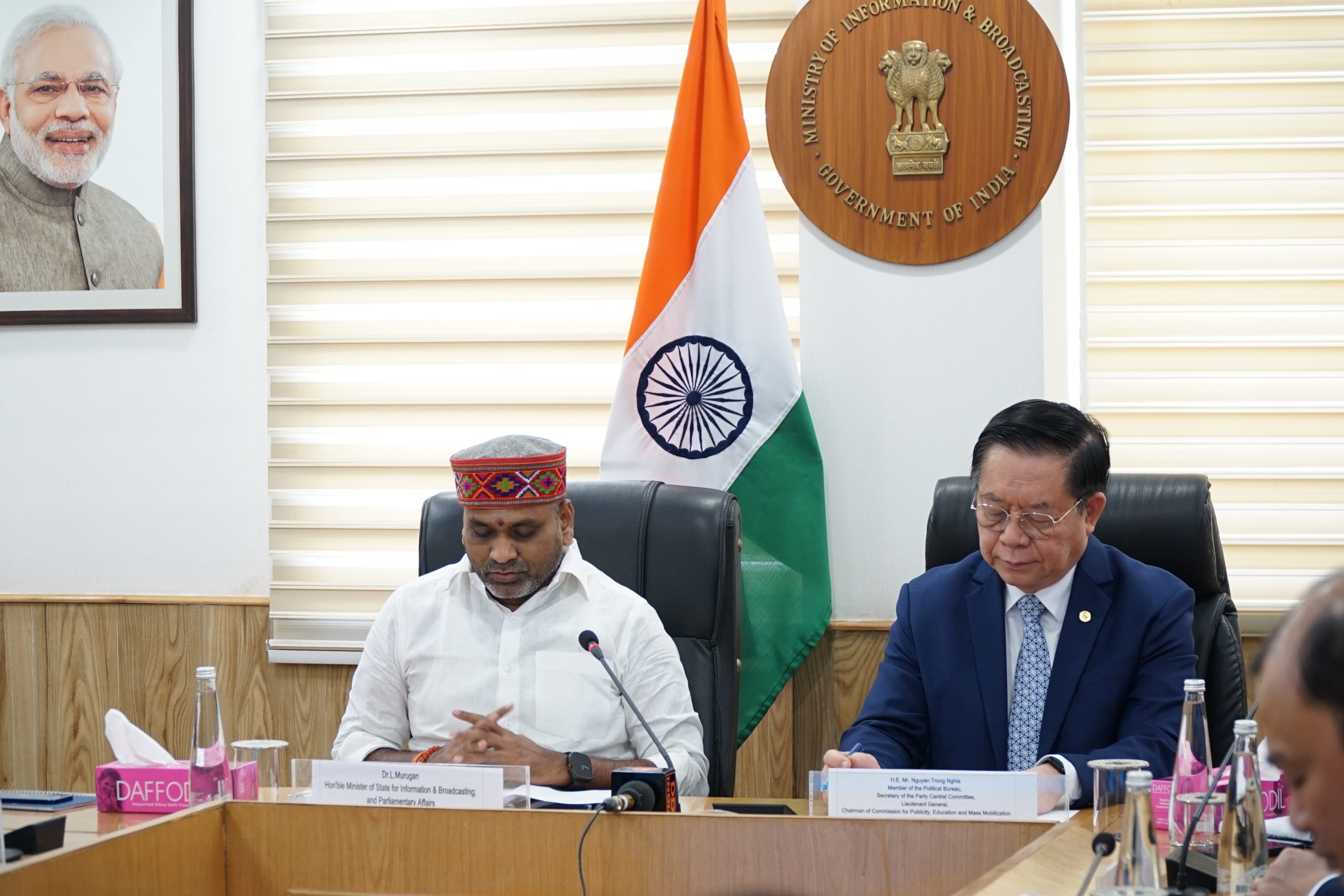
The delegation held talks with Minister of Culture and Tourism Gajendra Singh Shekhawat, where both sides agreed to strengthen cooperation in culture and tourism, share heritage preservation experiences, promote traditional cultural values, and enhance people-to-people exchanges. The Minister affirmed India’s commitment to continued cooperation with Vietnam in heritage preservation, cultural and educational exchanges. He noted that the Archaeological Survey of India had completed the first phase and begun the second phase of the restoration project of the Cham tower groups at Mỹ Sơn (Quảng Nam Province), a UNESCO World Heritage site. India will continue to offer scholarships to Vietnamese students and researchers for both long- and short-term training courses. He emphasized the importance of expanding cooperation in religious, cultural, and artistic exchanges to enhance mutual understanding and people-to-people connectivity between the two countries.
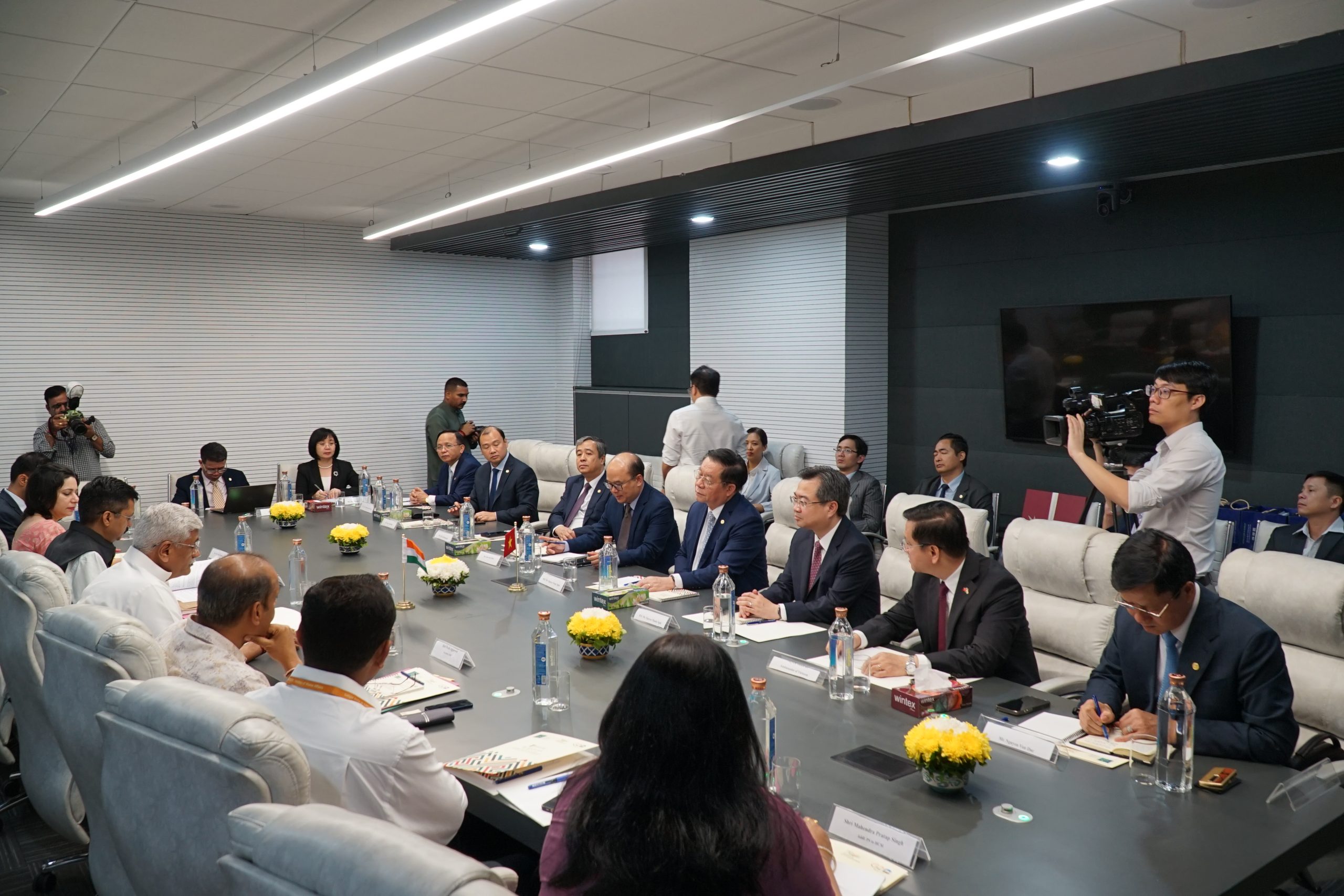
During discussions with Minister of State for Information & Broadcasting and Parliamentary Affairs L. Murugan, the two sides had an in-depth exchange on the role of media in promoting policy communication and mutual understanding, and on enhancing cooperation in digital transformation and social media. Minister Murugan shared that India has introduced a master plan for building its information infrastructure and is willing to collaborate with countries like Vietnam in expanding this network. He also proposed specific measures to enhance cooperation in information, journalism, media, entertainment, and cinema, seeing it as a vital link between the peoples of the two countries.
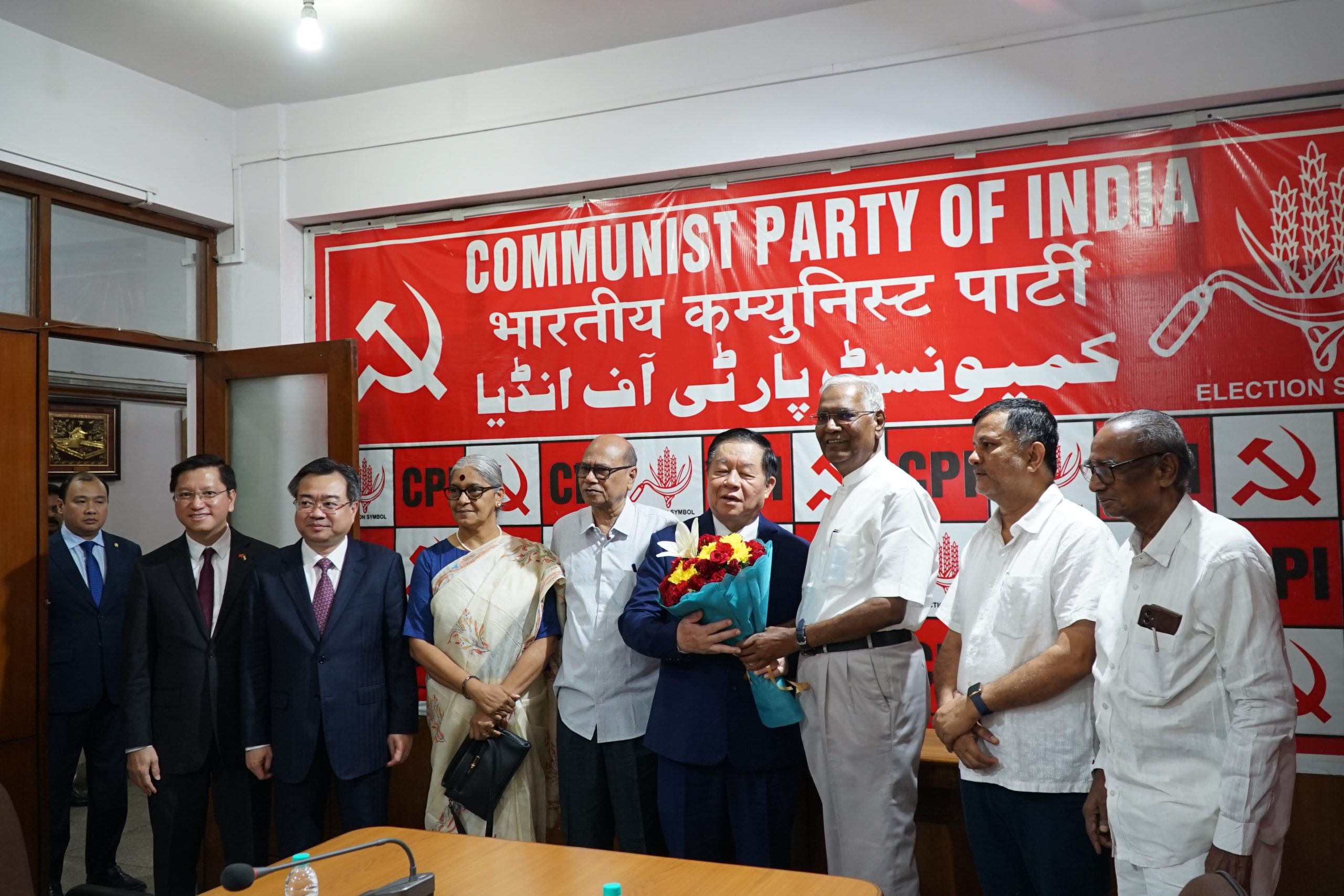
The ministers congratulated Vietnam on the successful organization of the recent UN Day of Vesak and expressed admiration at how millions of Vietnamese came to pay homage to the Buddha’s relics, reflecting deep friendship and strong ties between the two peoples.
General Secretary of the Communist Party of India (CPI) D. Raja and General Secretary of the Communist Party of India (Marxist) M.A. Baby expressed delight at Vietnam’s progress under the leadership of the Communist Party of Vietnam. They congratulated the Party and State for the successful celebration of the 50th anniversary of national reunification, praised recent policy directions adopted by the Party, and acknowledged Vietnam’s socio-economic achievements. They reaffirmed the desire to maintain theoretical exchanges and share practical experiences in Party-building and mass mobilization, especially as both countries face global challenges. CPI(M)’s General Secretary also expressed the wish to promote cooperation between Kerala (where CPI-M leads the governing coalition) and Vietnamese localities to further enhance bilateral ties.
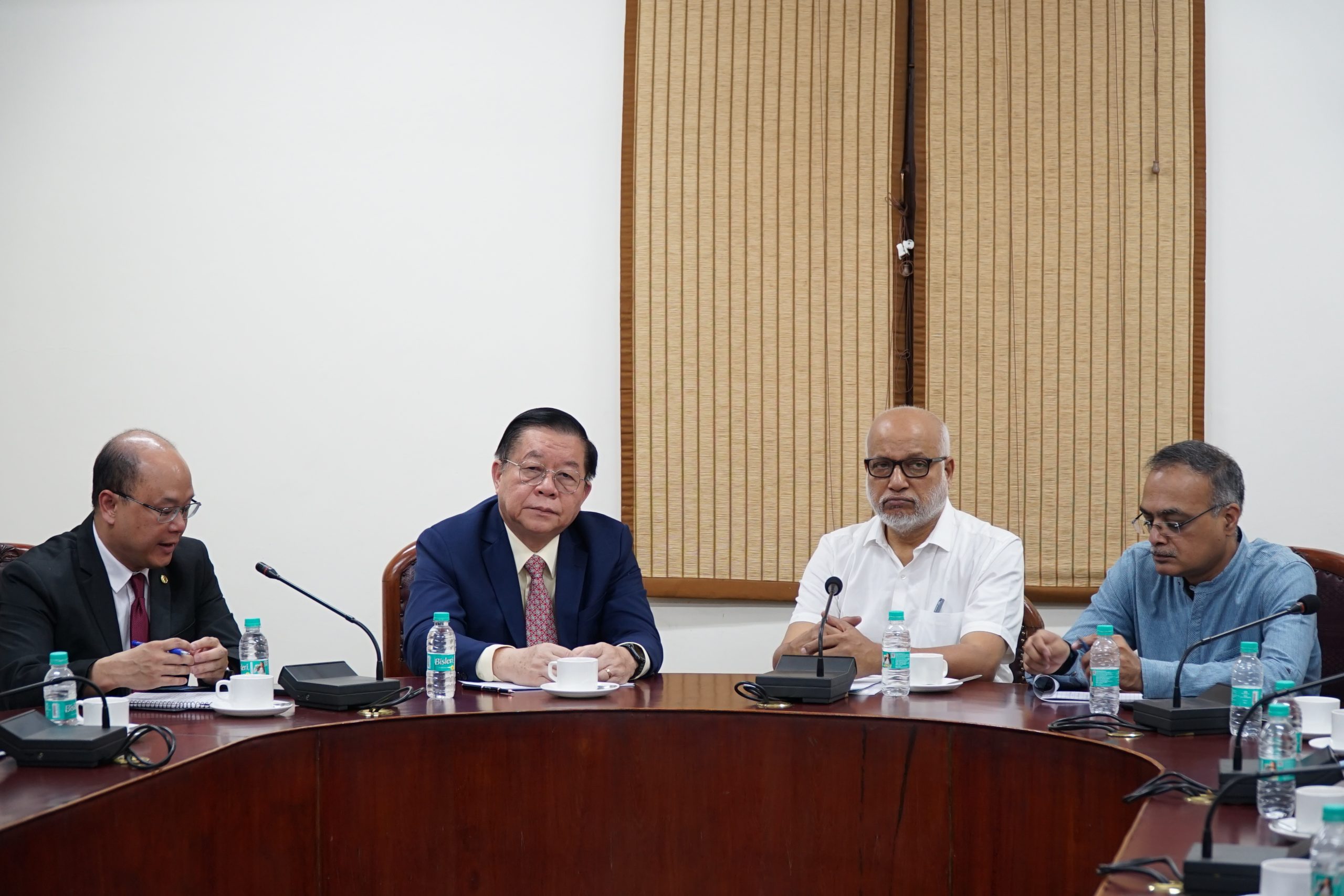
Vice President and Spokesperson of the Bharatiya Janata Party (BJP), Baijayant Panda, emphasized that Prime Minister Narendra Modi’s government highly values relations with Vietnam. He noted that both countries are emerging as regional economic growth hubs and underscored the importance of the Vietnam–India Comprehensive Strategic Partnership. He recognized the role of political parties in fostering trust and a reliable political foundation for comprehensive cooperation and reaffirmed Vietnam’s place as a key pillar in India’s “Act East” Policy. He also proposed both sides coordinate specific initiatives toward celebrating the 10th anniversary of the Comprehensive Strategic Partnership in 2026.
Speaking to officials and Party members of the Embassy and the Vietnamese community in India, Mr. Nguyễn Trọng Nghĩa discussed the significance of four key Party Resolutions related to science and technology development, international integration, law-making and enforcement, and private sector development, as part of Vietnam’s push into a new era of progress. He called on embassy staff and Party members to build on achievements, show greater initiative and responsibility in coordinating with relevant agencies to further advance the Vietnam–India Comprehensive Strategic Partnership. He emphasized that the Vietnamese Party and State always care for overseas Vietnamese, viewing them as an inseparable part and an important resource for the Vietnamese nation. He encouraged the Vietnamese community in India to uphold noble values, remain united, support one another, and stay connected to the homeland—serving as a “bridge of friendship” and a key contributor to bilateral relations.
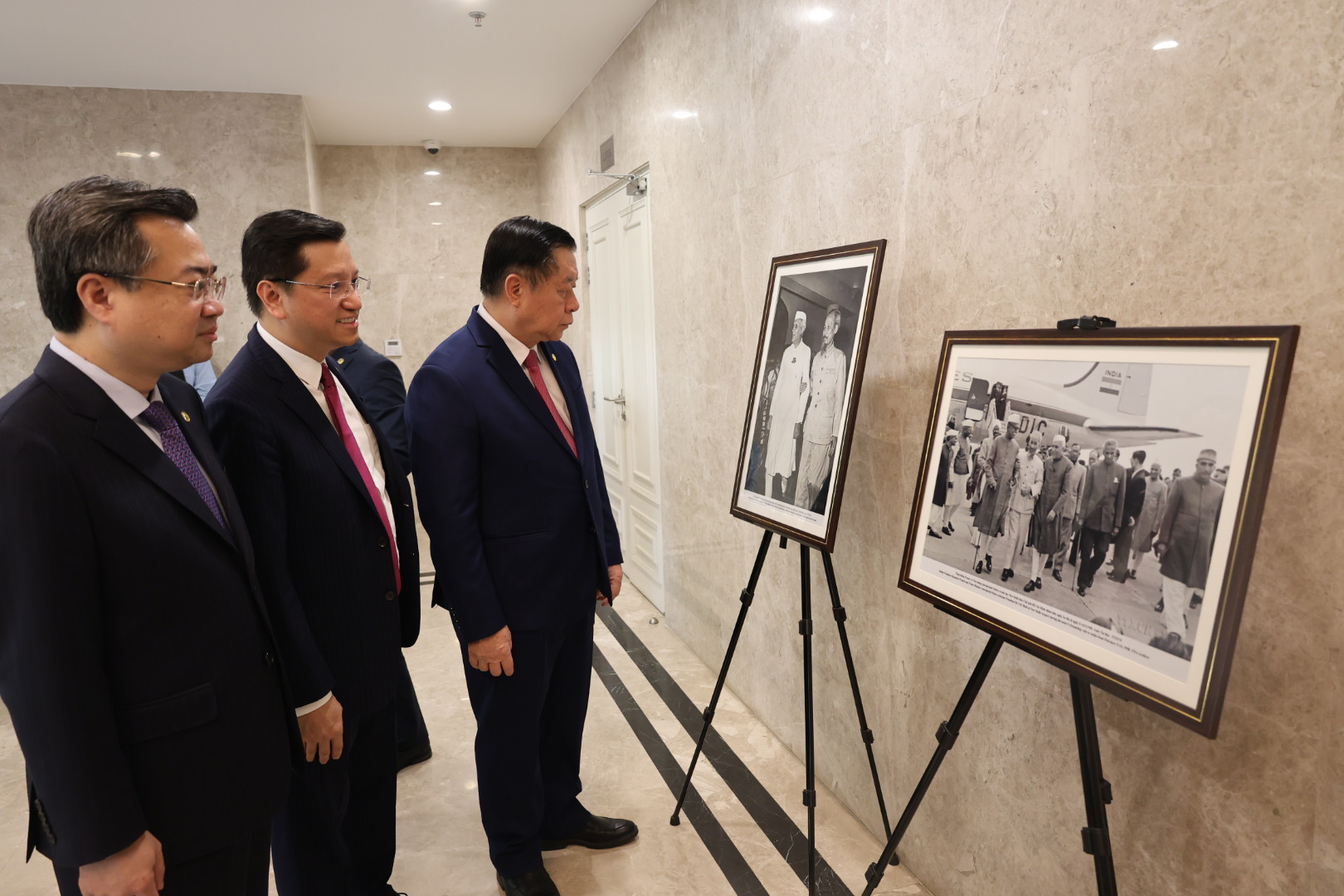
A significant highlight of the visit was the international seminar jointly organized by the Vietnamese Embassy and the delegation on June 4, 2025, titled “President Ho Chi Minh and the Vietnam–India Friendship and Solidarity”. The event was held in honor of the 135th birth anniversary of President Ho Chi Minh (May 19, 1890 – May 19, 2025) and the 114th anniversary of his departure to find a path to national salvation (June 5, 1911 – June 5, 2025).
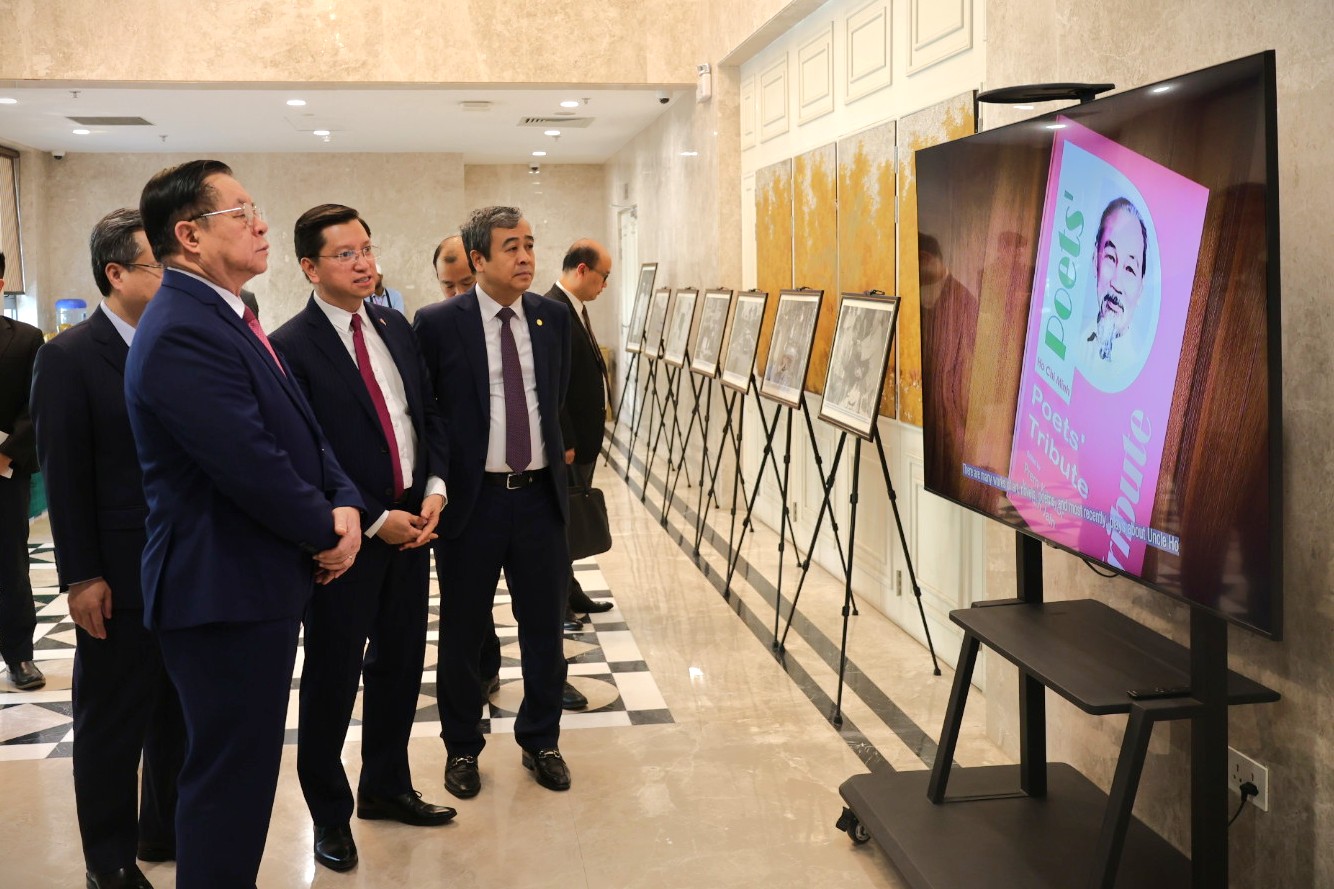
The seminar featured seven presentations and drew over 60 participants from both countries, including leaders from the Communist Party of India, the All India Forward Bloc, the India–Vietnam Solidarity Committee of West Bengal, and prominent scholars, researchers on India, embassy staff, and representatives of the Vietnamese community.
At the seminar, Dr. Tilottama Mukherjee, Associate Professor and Head of the Department of Political Science, Syamaprasad College (Kolkata), affirmed that President Ho Chi Minh was not only a brilliant political activist but also a political philosopher—simple, virtuous, hardworking, and frugal—embodying the highest standards of integrity, altruism, and dedication to serving the nation and people. His legacy lives on through street names and monuments in cities like Kolkata and New Delhi, symbolizing the deep emotional bonds between the peoples of Vietnam and India.
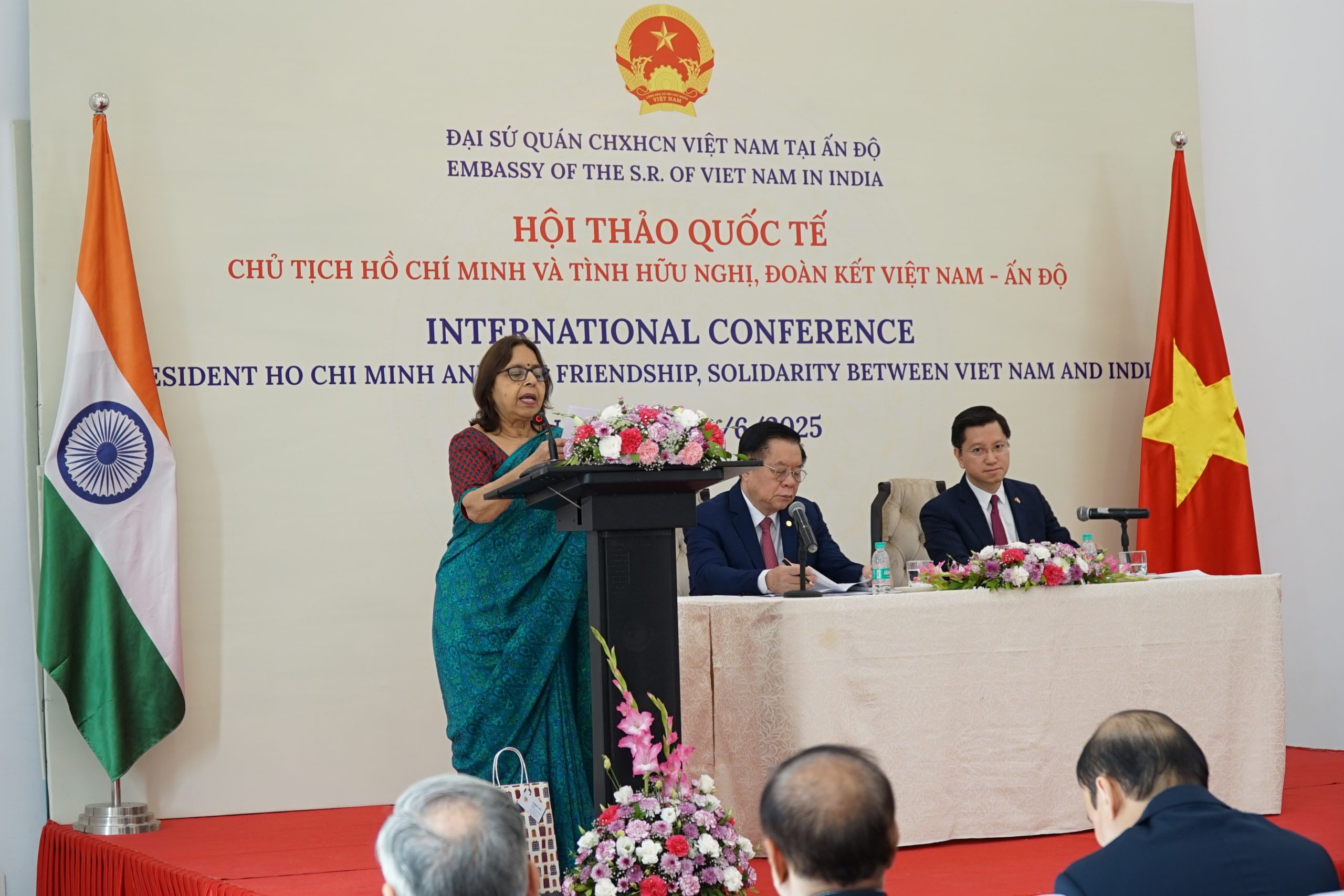
Professor Sonu Trivedi from the University of Delhi emphasized Ho Chi Minh’s synthesis of revolutionary ideals with Eastern philosophy and Marxism with compassion, always placing the people at the center. His life inspired global admiration for both his intellect and moral integrity.
Professor Chintamani Mahapatra, founder and honorary chairman of the Kalinga Institute of Indo-Pacific Studies and Editor-in-Chief of Foreign Affairs Journal, noted that India’s “Act East” policy—which prioritizes relations with Vietnam—was rooted in the personal ties that President Ho Chi Minh built with leaders like Prime Minister Jawaharlal Nehru in the early days of India’s independence.
Praising the special friendship between President Ho Chi Minh and Prime Minister Nehru, Mr. Pallab Sengupta, Politburo Member and Head of the International Department of the Communist Party of India, stated that their exemplary relationship is not merely a legacy of the past but a living inheritance for the present and future, urging the youth of both nations to uphold mutual respect and pursue shared ideals beyond boundaries and time.
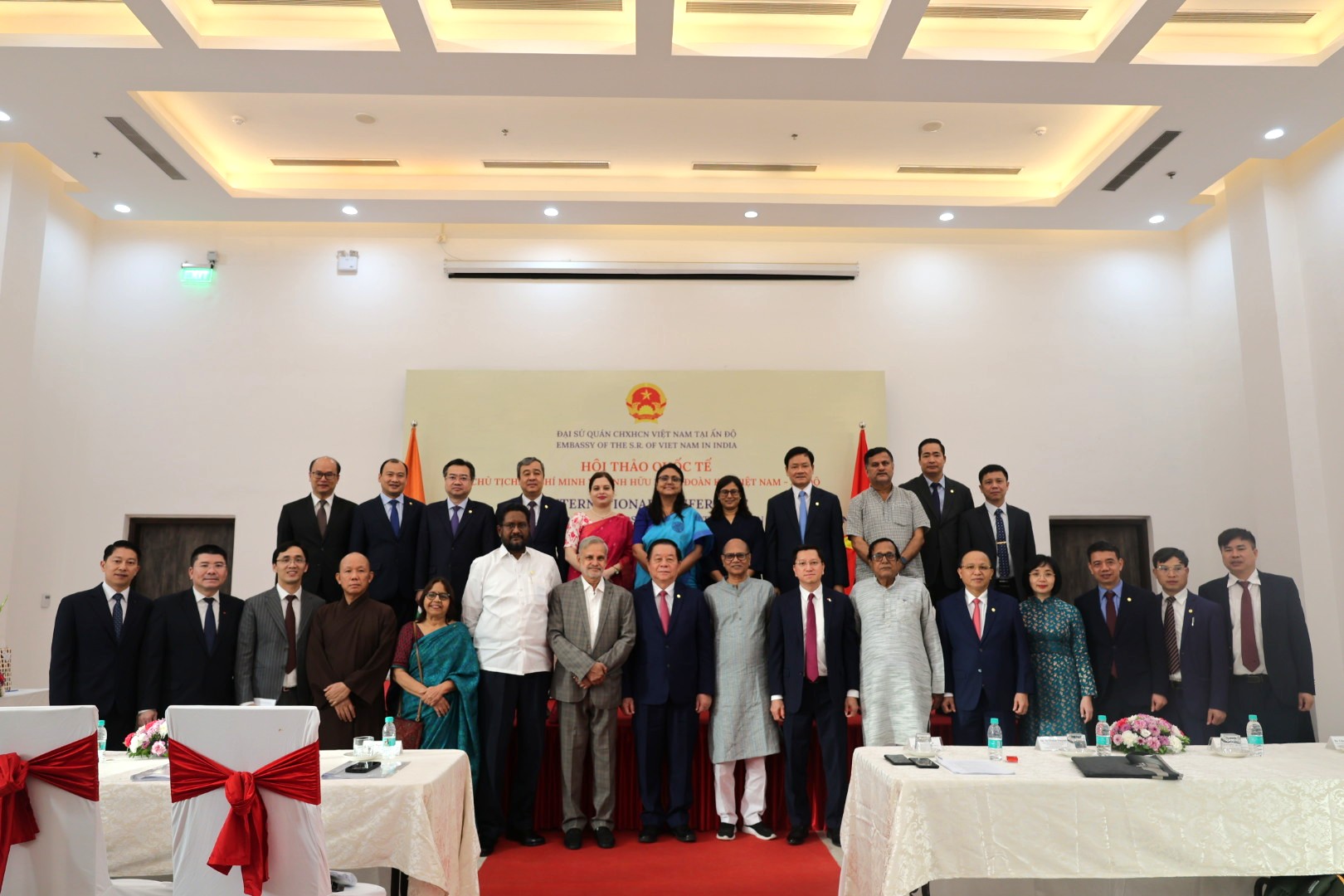
Ms. Kusum Jain, Chairwoman of the India–Vietnam Solidarity Committee (IVSC), noted that President Ho Chi Minh’s people-centered diplomacy fostered great international solidarity. She highlighted the Indian people’s movement in support of Vietnam during the war against the U.S., pointing to streets named after Ho Chi Minh and his statue in a central Kolkata park as enduring symbols of admiration.
In his presentation, Mr. Lê Hải Bình, Alternate Member of the Party Central Committee and Permanent Deputy Minister of Culture, Sports, and Tourism, emphasized that Ho Chi Minh always placed Vietnam’s revolution within the broader context of global revolutionary movements, balancing national interests with the common cause of human progress.
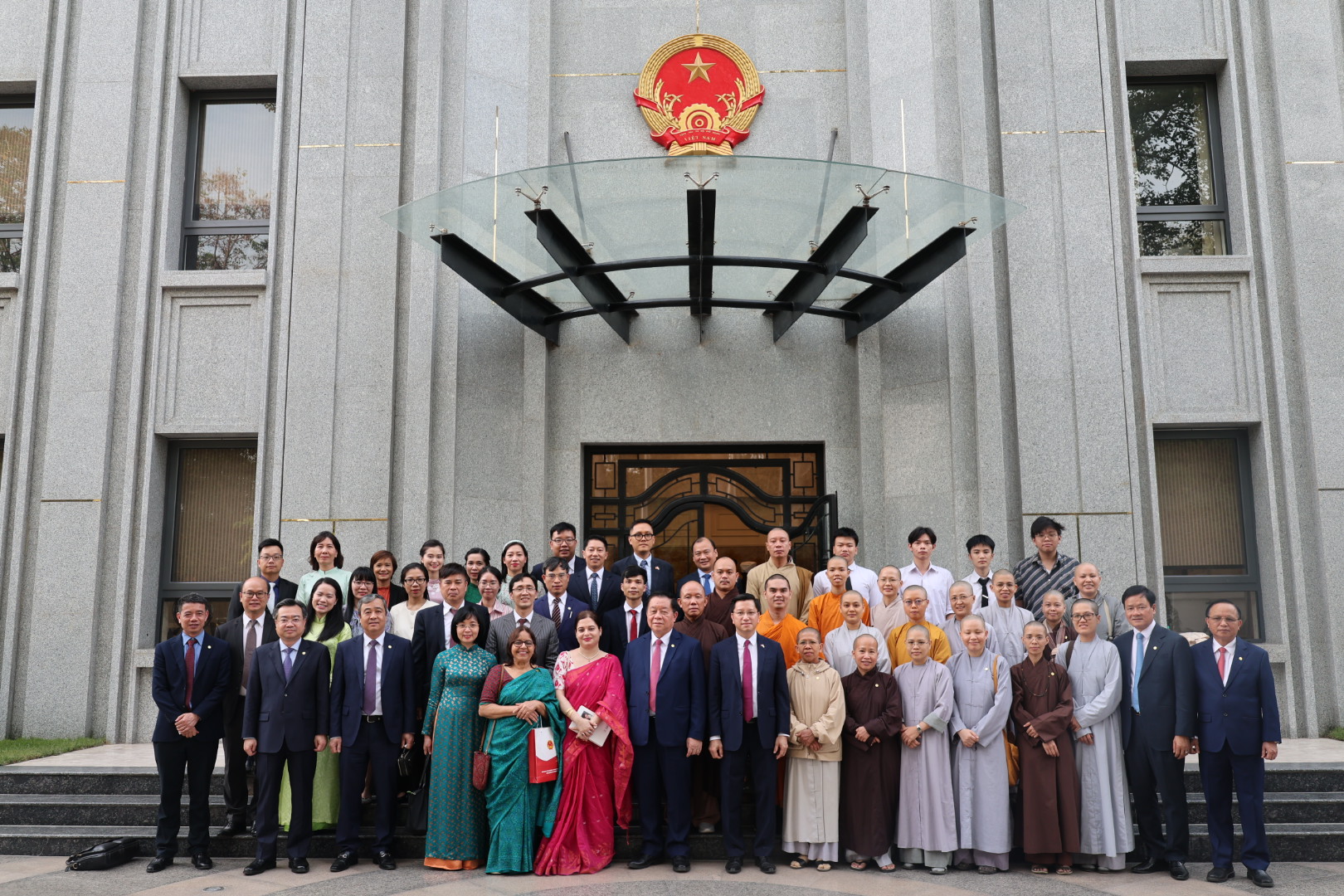
In his concluding remarks, Mr. Nguyễn Trọng Nghĩa expressed gratitude for the insightful and heartfelt contributions of scholars from both countries, noting that the discussions had vividly illustrated Ho Chi Minh’s humanistic diplomacy and peace-loving spirit. He underscored the enduring value of the Ho Chi Minh–Nehru friendship, calling it a powerful legacy that strengthens the traditional ties of mutual support and cooperation between Vietnam and India. He emphasized that the Comprehensive Strategic Partnership continues to grow, grounded in political trust, cultural affinity, and shared interests in sustainable development.
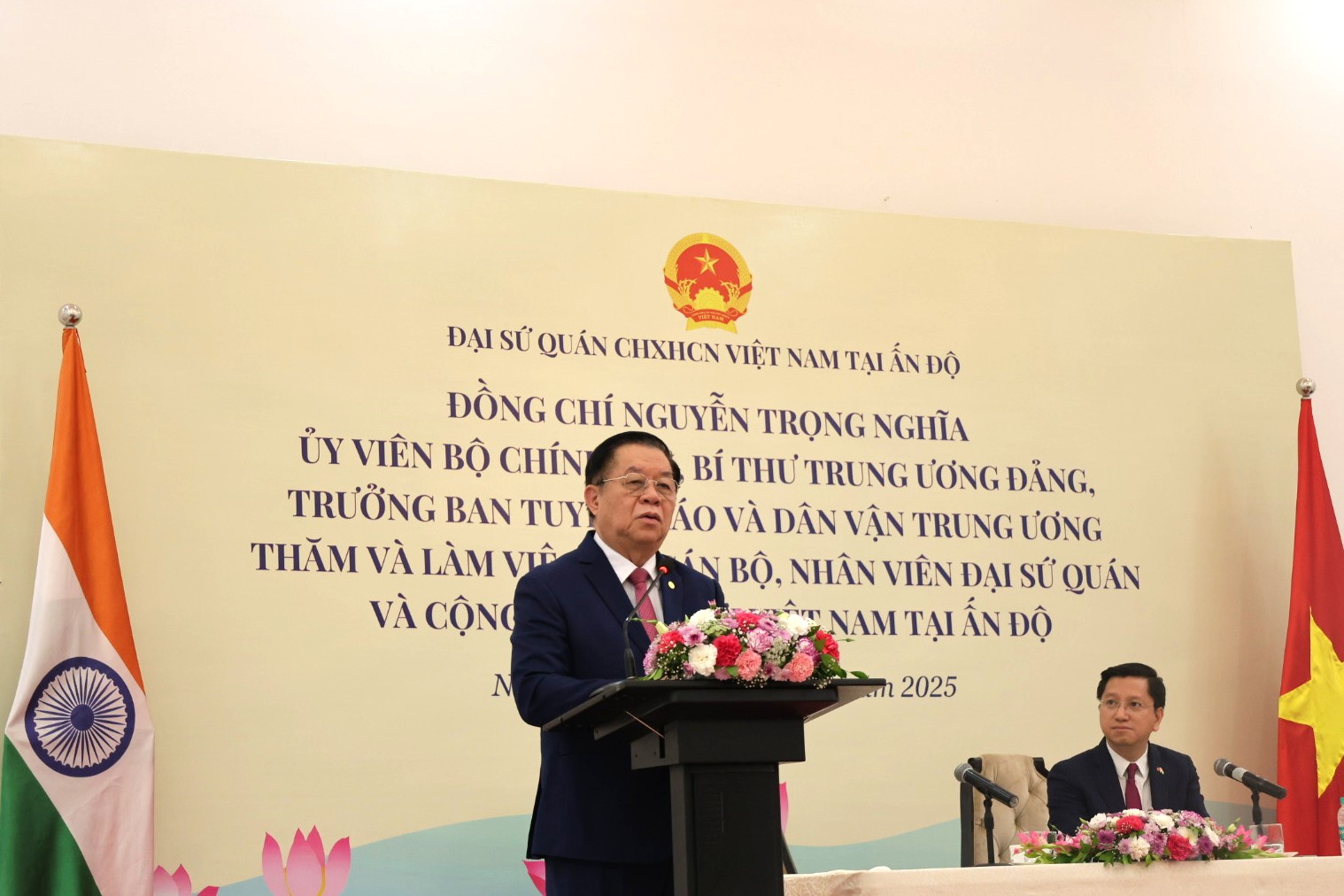
The seminar was a great success and had a broad impact, reflecting the sincere and deep affection of Indian political leaders, mass organizations, and scholars for President Ho Chi Minh and the Vietnamese people. It highlighted the enduring friendship and solidarity forged by Ho Chi Minh and Nehru, nurtured by generations of leaders and citizens from both countries, and remains a strong foundation for advancing the Vietnam–India Comprehensive Strategic Partnership in the future.
Compiled from VNA, VOV, and Nhân Dân newspaper.




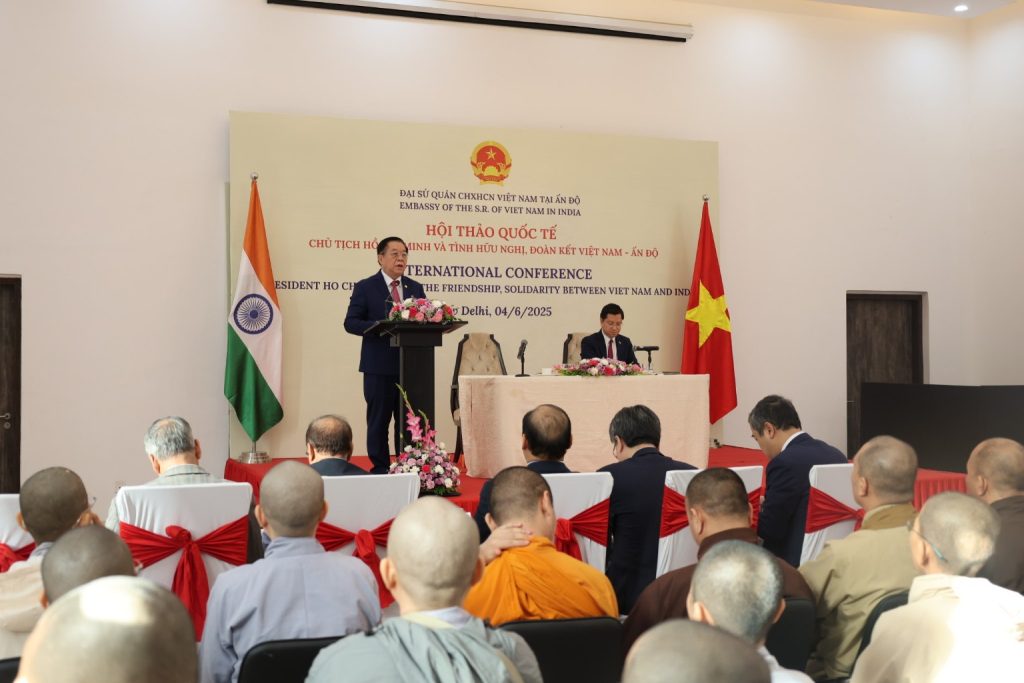
Related Post